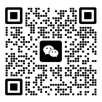摘要 这篇论文是有关一项项目实施的具体报告。这个项目是为了解决这样一个问题:我的大多数学生在英语课堂上不敢用英语发言。前提假设是:如果口语活动设计的很好,学生会积极大胆地参与英语发言。
我使用了科学调查方法中的语义分析法,原因分析法和问卷调查法。
关键词 英语口语, 口语活动, 积极
1. Introduction
I am a full-time English teacher in Baojing County Hunan Province. I am teaching in Grade one now. There are sixty students in my class and four lessons every week. All the students have learned English for more than two years. During my English teaching, I have found a problem that drives me to think a lot. I hope that I can solve this problem through the action research
2. Problem analysis
2.1 Problem
The problem that has been troubling me for a long time is that most of my students dare not speak in English in class.
2.2 Problem analysis
The problem identified hindered my students’ learning in a serious way and I determined to solve it. My preliminary research confirmed that there were several reasons for this problem:
Firstly, students lack English language environment. They don’t know how to pick up the right words in a certain situation.
Secondly, they are afraid of making mistakes and being laughed at by their peers.
Thirdly, they think their speaking ability is weak. So they are not confident and not interested in oral English.
2.2.1 Analytic method
Most of my students dare not speak up in English in class.
Most of my students dare not speak up in English in class.
The word most made me think of the other side: there is still a few of my students who are active in speaking English in class; who are they?
Moreover, ‘my students’ is in contrast with my colleagues’ students. This prompted me to make a chain of reflections.
What about my colleagues’ students? Is it also the case? If my colleagues’ students are active in speaking in English in class, then the problem is actually caused by me.
The phrase In English also made me think of the issue: what if they are asked to speak in Chinese? They must have lots of things to say. But when it comes to English, most of them will keep in silence. Then they must have difficulty in expressing themselves just in English. Why are things like that? Maybe I did not give them enough English phrases and the activities designed were far from their everyday life.
2.2.2 Cause analysis
2.2.2.1The teacher’s side----that’s I
Is it because the oral tasks are difficult for students?
Maybe yes.
Is it because the teacher says too much, so the time for speaking practice is not enough?
Maybe yes. The traditional teaching style is not suitable for students to speak.
Is it because I criticized them too seriously when they made mistakes?
Maybe yes. I should give them more encouragement especially when they have made some mistakes.
Is it because the oral activities are a little boring?
Maybe yes. Students are not interested in the subject of the oral activities.
2.2.2.2 The students’ side
Is it because they are not confident?
Yes. They have just learned a little English.
Is it because they are afraid of making mistakes and being laughed at?
Yes, especially when they are with their peers. I should help them overcome the shyness.
Is it because they don’t spend enough time practicing?
Is it because they don’t like oral English or they think oral English is not important?
2.2.2.3 The class size
There are 60 students in my class. It’s impossible to get all students practicing oral English in limited 45 minutes.
2.2.3 Questionnaire survey
Since most of my students dare not speak in English in class, I designed a questionnaire (see Appendix A) to find out the reason. I tried to make it as scientific and effective as possible. I tried to put the 9 steps (how to use a questionnaire) into practice. After working out a list of things that call for the students’ opinion, I designed a draft questionnaire and tried it out with four students of four English levels. Then I revised and finalized the questionnaire. I distributed 15 copies of it. All returned their questionnaires which were left anonymous.
I processed the data collected and found that about 60% of them thought oral English was important; of them who dare not speak in English, 67% were afraid of making mistakes; nearly 80% of them did not know how to pick up words. Therefore I knew that students were clear about the importance of oral English. They just did not get good guidance and they were not familiar with English way of expression.
2.3 Project hypothesis
It is hypothesized that if oral activities are well designed, then students will take an active part in speaking in English
3 Possible solutions
Through the above analysis of this problem, I have provided some possible solutions as follows:
3.1 Help my students to make up ten groups with 6 members each. Each group is composed of students of different English levels so that the good can help those lagging behind.
3.2 At the beginning of every lesson, the student on duty does some report on weather, attendance, date and so on.
3.3 Tell them some simple classroom phrases so that they can keep up with me.
3.4 Design simple activities close to their everyday life according to context and give them time to practice in groups. Let them act the activities out before the whole class. It is hoped that such student-centered activities can help motivate students in their oral communication.
3.5 Lead them to do interesting games such as guessing-games. Singing English songs is also such a good way.
3.6 I have also found that praising the students in time for their active participation is very important. It can help them overcome the worry of making mistakes.
4 Research design
With the hypothesis in my mind that if oral activities are well designed, then students will take an active part in speaking in English, I designed four activities to be tried out in four weeks.
5. Project implementation
In order to get most of the students be highly involved in the oral activities, I divided them into 10 groups. In every group there was a student as organizer who is good at oral speaking and active. There is an obvious advantage in groups that members can help each other easily when they have any difficulties.
The students are about 13 years old. They are full of curiosity. They are fond of games and all kinds of interesting activities. Designing activities close to their everyday life can help them easily understand the right usage of English. What’s more, they are more willing to attend these kinds of activities. Singing English songs is the same way.
In class, I often asked students to make up dialogues in given circumstances and act them out. Most students were desire to show before others. They hoped to be encouraged and praised by teachers and others. I also asked students to elect the best group to motivate their interests.
I put my detailed project design into practice. It cost four weeks.
6. Data analysis
 《湖北林业科技》
《湖北林业科技》 《Chinese Journal of Chemical Physics》
《Chinese Journal of Chemical Physics》 编辑QQ
编辑QQ  编辑联络
编辑联络 

